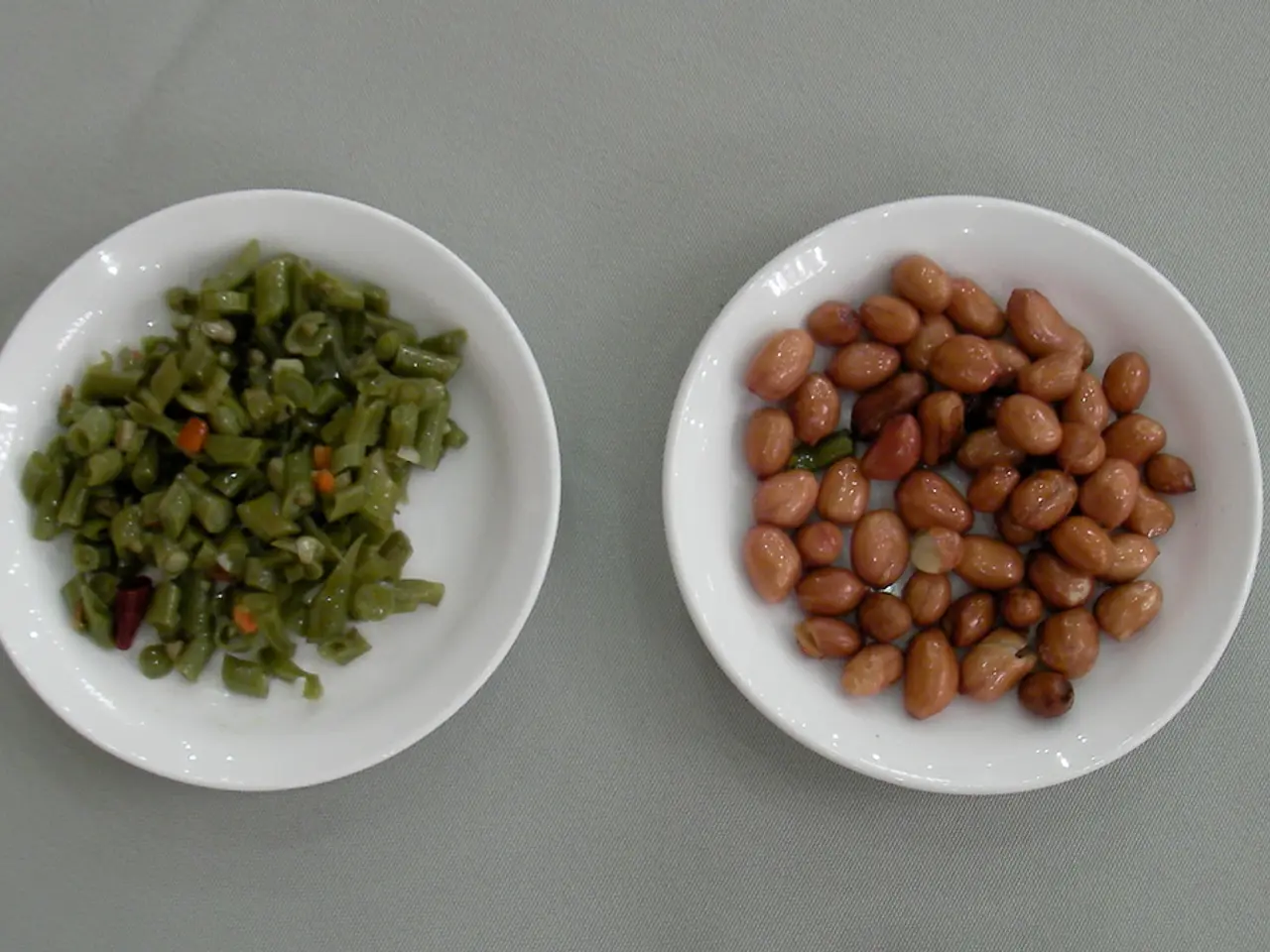A study reveals that consuming a daily serving of this common pantry item could potentially reduce cholesterol levels.
Researchers at the Illinois Institute of Technology are delving deeper into the effects of chickpeas and black beans on our health, particularly focusing on how these legumes influence the gut microbiome. The full results of the study are yet to be published in a peer-reviewed journal.
In the NUTRITION 2025 study, led by Morganne Smith, a PhD candidate in food science and nutrition, the specific health benefits of chickpeas compared to black beans were explored. Here's a summary of the findings:
Cholesterol-Lowering Effect
After a 12-week period, chickpeas were found to significantly lower total cholesterol levels in prediabetic individuals. On average, total cholesterol dropped from about 200 mg/dL (at-risk level) to a heart-healthy range near 186 mg/dL. Black beans, however, did not demonstrate a significant reduction in cholesterol during the same study.
Anti-Inflammatory Benefits
Black beans showed stronger effects in reducing low-grade chronic inflammation compared to chickpeas. This is likely due to the unique phytochemicals (anthocyanins) found in black beans, which are potent anti-inflammatory agents. Chickpeas, on the other hand, are richer in phytosterols, which mainly contribute to cholesterol lowering.
Nutritional Profile Differences
Both legumes are high in protein and fiber, supporting heart health and weight management. However, black beans provide slightly more protein (15 g per cup) and fiber (15 g per cup) than chickpeas (around 14.5 g protein, 12.5 g fiber). Chickpeas have higher folate (282 mcg vs. 256 mcg) and iron (4.7 mg vs. 3.6 mg) content.
Glycemic Control
Chickpeas have been found to significantly reduce postprandial blood glucose levels, suggesting a beneficial effect on glycemic control. This effect was not specifically attributed to black beans in the study.
In conclusion, chickpeas are notably superior for lowering cholesterol and improving glycemic responses, while black beans excel at reducing inflammation. Both contribute valuable protein, fiber, and minerals, but differ in their phytochemical composition and consequent targeted health benefits.
This distinction supports dietary recommendations to consume a variety of legumes to optimize cardiovascular and metabolic health through their complementary effects. The study used canned versions of chickpeas and black beans for convenience, and participants were asked to incorporate them into their regular diets without specific preparation instructions.
The researchers are currently exploring the bioactive components that distinguish black beans from chickpeas, analyzing the (poly)phenolic composition of both interventions and their metabolite profiles in the blood. The study's goal is to better understand the mechanistic links between diet, the microbiome, and the prevention of chronic diseases.
- The science of nutrition research, spearheaded by Morganne Smith, is delving into the contrasting health benefits of chickpeas and black beans, shedding light on their impact on our health-and-wellness.
- In the realm of SCIENCE, the NUTRITION 2025 study revealed that chickpeas, over a 12-week period, significantly lowered cholesterol in prediabetic individuals more effectively than black beans.
- In the area of FITNESS-AND-EXERCISE, black beans were found to be more effective at reducing low-grade chronic inflammation due to their high content of anti-inflammatory phytochemicals, anthocyanins.
- BOTH legumes, chickpeas and black beans, boast high protein and fiber content, promoting heart health and weight management, but they differ in nutritional profile, with chickpeas containing more folate and iron.
- The study of technology and science is currently investigating the polyphonic composition of black beans and chickpeas, aiming to understand how these bioactive components could contribute to the prevention of chronic diseases through their effects on the gut microbiome.




